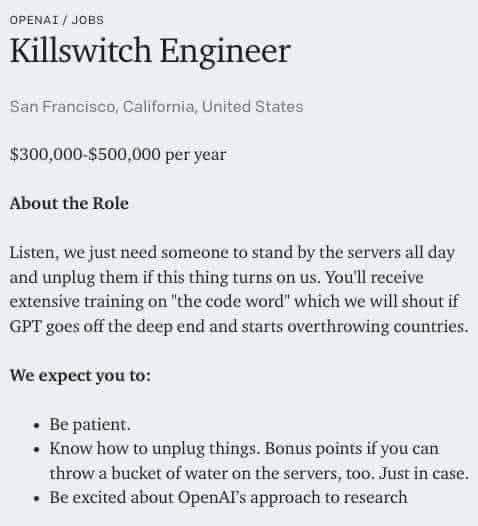Rejoice. Sir Jonathan is working with OpenAI to bring us LLMs with rounded edges.
All will be well.
God, the Devil, and AI feat. Miles Klee (E323)
QAA Podcast
People use generative artificial intelligence to troubleshoot technical problems, churn out anime-inspired images based on their personal photos, and drive university professors who teach undergrad courses to the darkest pits of despair.But are the applications of artificial intelligence limited to worldly matters?
On today’s episode, we discuss how strings of words generated by mindless neural network predictions over tokenized inputs are burrowing into our very souls. First, we speak to Rolling Stone journalist Miles Klee, who recently published a fascinating investigation into people who have fallen into spiritual fantasies because of their conversations with ChatGPT. And then Annie covers how conservative author Rod Dreher sees the devil in AI chatbots.
Have you heard the good news of our lord and savior: byte pair encoding tokenization?
Nightmare Blunt Rotation
The partner of Theranos founder Elizabeth Holmes has raised millions of dollars for an artificial intelligence startup hoping to introduce a product that can be used in medical testing and other settings, according to two sources with direct knowledge of the endeavor who could not speak publicly because the company has not yet officially launched. The company is called Haemanthus, which is Greek for “blood flower.”

It was a good, thoughtful conversation but they really committed to that “it’s a d*ck-sucking machine” metaphor, didn’t they? (Not that I disagree!)

On Sunday night, House Republicans added language to the Budget Reconciliation bill that would block all state and local governments from regulating AI for 10 years, 404 Media reports. The provision, introduced by Representative Brett Guthrie of Kentucky, states that “no State or political subdivision thereof may enforce any law or regulation regulating artificial intelligence models, artificial intelligence systems, or automated decision systems during the 10 year period beginning on the date of the enactment of this Act.”
The broad wording of the proposal would prevent states from enforcing both existing and proposed laws designed to protect citizens from AI systems. For example, California’s recent law requiring health care providers to disclose when they use generative AI to communicate with patients would potentially become unenforceable. New York’s 2021 law mandating bias audits for AI tools used in hiring decisions would also be affected, 404 Media notes. The measure would also halt legislation set to take effect in 2026 in California that requires AI developers to publicly document the data used to train their models.
I can’t wait to subscribe to access my own memories past a calendar year


